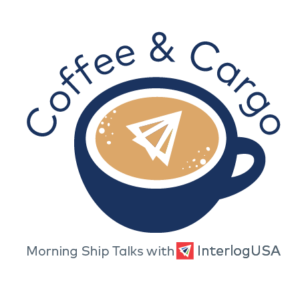Competitive Edge
UPDATE: U.S./Canada Ports – Number of Vessels at Anchor as of 10-11-22
- Savannah: 31 Vessels at Anchor (0)
- Houston: 28 Vessels at Anchor (-2)
- Vancouver: 27 Vessels at Anchor (-2)
- Mobile: 17 Vessels at Anchor (+9)
- San Francisco/Oakland: 11 Vessels at Anchor (+1)
- New York/Newark: 10 Vessels at Anchor (+2)
- Los Angeles/Long Beach: 7 Vessels at Anchor (-1)
- Charleston: 4 Vessels at Anchor (+2)
Note: This count does not include vessels moored and being unloaded at port docks. Colored numbers in parentheses represents the change from last week over. Data is courtesy of MarineTraffic live vessel traffic map.
Have another U.S. or Canadian port you’d like us to track weekly? Let us know!
Takeaways
- U.S. West Coast: Not only is the congestion down, it’s also been consistent with little change week over week. The USWC is most the stable of the three in respects to vessel congestion.
- U.S. Gulf Coast: Houston remains the epicenter of congestion for the Gulf. Mobile’s congestion has also taken a dramatic jump from last week.
- U.S. East Coast: Savannah remains at the forefront of vessel congestion of all U.S. ports. New York/Newark remains relatively low with ten vessels at anchor. We continue to suspect that carriers are weary of the port’s impending fees on dwelling containers.
- Canada: Vancouver has been subject to vessel berthing delays keeping its congestion count high, however the port has seen week over week improvements that hopefully will sustain.
IMPORT: Asia to North America (TPEB)
Recent Developments:
- Major carriers, MSC, Maersk, and CMA CGM, are cutting three transpacific services as import demand and spot rates continue to wane.
- Contract negotiations between the International Longshore and Warehouse Union (ILWU) and Pacific Maritime Association (PMA) remain active. The existing labor contract between the two parties expired July 1.
Rates: Rates continue to fall, notably from Chinese base ports to all U.S. coasts. Carriers have announced GRIs effective October 15 affecting all Canadian and U.S. destinations for freight from Asian and Indian sub-continent origins.
Space: Space is open.
Capacity: Lower demand has led to carriers reducing their capacities.
Equipment: Some inland terminals are reaching max capacity with inventory. Intermodal systems remain stressed with congestion and truck and chassis bottlenecks.
TIPS:
- Book at least two weeks prior to the ready date.
- For cargo ready now, take advantage of open space and fallen rates on the spot market.
- Blank sailings are becoming more commonplace. Keep this in mind as it effects schedule integrity.
IMPORT: Europe to North America (TAWB)
Recent Developments:
- Northern European hubs, such as Rotterdam, Antwerp, and Hamburg, remain congested.
- Labor-related tensions remain gripping the U.K’s ports as unions dispute over a new pay deal that matches inflation rates.
- The second strike in the last two months of around 1,900 dockworkers at Britain’s largest container port, Felixstowe, has wrapped up last week.
- Dockworkers at the Port of Liverpool have started a second strike yesterday and will plan for it to go through October 17. This new strike follows an 11-day walkout that occurred the other week.
- For both the port strikes at Felixstowe and Liverpool, the dockworkers have warned the ports respectively that further walkouts could occur should a deal not be reached.
Rates: Rates have seen some decreases. However, not at the same clip as other trade lanes. When more capacity is introduced, expect rates to trend downward.
Space: Space remains tight to the USEC. However, space has opened for direct routings to the USWC.
Capacity: Capacity for both North Europe and Mediterranean services remain gripped, but carriers are expected to add larger vessels to EC loops which will loosen up this capacity crunch.
Equipment: Equipment at European seaports is not as readily available as it has been for the past few months. Inland terminals in Europe are also still reporting equipment shortages. On the U.S. side, truck and chassis availability remain concerning.
TIPS:
- Book five or more weeks prior to ready date.
- Strongly consider premium services for no-roll options and improved reliability of cargo.
- Be flexible and entertain alternative routings. They could cut back on wait times and/or costs.
EXPORT: North America to Asia
Recent Developments:
- For the U.S., port congestion remains an issue for Savannah and Houston.
- Diminished schedule integrity continues to challenge post earliest return dates.
- Vessel arrivals remain smooth for USWC POLs.
Rates: So far, no GRIs announced for October.
Capacity: Available capacity remains fluid for USWC POLs.
Equipment: Truck, container, and chassis availability remains dire and has significantly contributed to congestion of the intermodal system and IPI origins. Standard equipment at ports remains available unless carriers advise otherwise.
TIPS:
- Book four to five weeks prior to the time of departure to secure necessary equipment and vessel space.
InterlogUSA Proudly Presents... Our New Podcast!

Offering insights into breaking news, market trends, our company’s history, and more.
“FreightFM” features short-form video interviews with InterlogUSA’s industry experts.
Highlights of the Week
– LAX has requested proposals to ‘modernize’ cargo redevelopment at the airport in an effort to improve freight flows. Many in the industry applaud these efforts as they say LAX needs to upgrade their cargo in order to stay competitive and grow.
– Port of Houston is considering implementing a long container dwell fee to help clear the backlog of imports sitting at its marine terminals past their allotted free time. As of now, there has not been any details reported regarding what the amount of the fee would be, how it would be assessed, or when a decision on when the potential implementation would be made.
– Barge traffic on the Mississippi has resumed near Stack Island and Memphis, after a multiday shutdown due to shallow water and multiple groundings. Check out our latest blog for more information!
Sources: FreightWaves, Journal of Commerce, and Maritime-Executive
Freight News
U.S. retailers expecting import numbers to decline in October as holiday season nears
U.S. retailers are expecting October imports to decline nearly 10 percent year-over-year. They also are downgrading their November and December expectations for imports throughout those months, and then imports are expected to bounce back slightly at the start of the new year.
Ports on all three coasts in the U.S., saw volumes drop in September, FreightWaves reports. One reason for this? Hurricane Ian. September volumes around the U.S. East Coast, particularly at the Port of Savannah, were significantly impacted because of the hurricane and the suspended vessel service that occurred. Another reason? Imports from China are declining. Data shows that U.S. imports from China totaled 820,329 twenty-foot equivalent units (TEUS) in September, which is down 22.7% year-on-year and 18.3% compared to August.
Holiday Outlook
Interestingly enough, imports and consumer spending are still above pre-pandemic levels. However, for U.S. retailers it has been a little difficult to plan ahead. In some instances, there’s too much inventory, and in other instances it’s more difficult to get what you want. For example, electronics such as gaming systems are flying off the shelves, while seasonal goods are seeing more amounts of inventory. This comes after last year when retailers were scrambling to get enough inventory because of the supply constraints that were occurring last year.
It’s not too uncommon for imports to hit a seasonal decline this time of year, but usually not by this much. If it continues, many then expect that decline, or slow down, to continue for the remainder of the year.
Port of Liverpool sees volumes drop because of slowing demand, worsening economic conditions
A second strike at the Port of Liverpool began Tuesday, as the port sees volumes drop due to slowing demand and worsening economic conditions. The strike, which is expected to last seven days, (October 11th to October 17th) has created additional delays in product delivery because of previous strikes at Liverpool and at Felixstowe.
Workers at Mersey Docks and Harbour Company will walk out in support of a 12.3 percent wage increase. Recently, the union rejected Peel Ports’ offer of an average increase of 10.2 percent in basic pay. The union wants a 12.3 percent average increase as they estimate that is the current consumer price inflation rate, the Journal of Commerce reports. The union representing these workers stated they will continue to hold these strikes until their pay matches inflation, CNBC reports.
Additionally, the port of Liverpool last Friday announced it will begin redundancy consultations this week, that will result in job losses due to the port seeing a drop in volume, the JOC notes. However, no volume details for the port of Liverpool have been announced.
Sign Up for Next Week's Webinar!

Make sure you sign up for our next webinar that is taking place on Wednesday, October 19th! We will be discussing current and exciting topics in the freight industry.
If you have never joined our Coffee and Cargo webinar, click the "Watch Now" button to view our most recent Webinar.
We look forward to seeing you there!
Sign up for our
industry answers
Our team works to provide valuable, unique, and relevant content to assist you in finding solutions. Sign up now.



